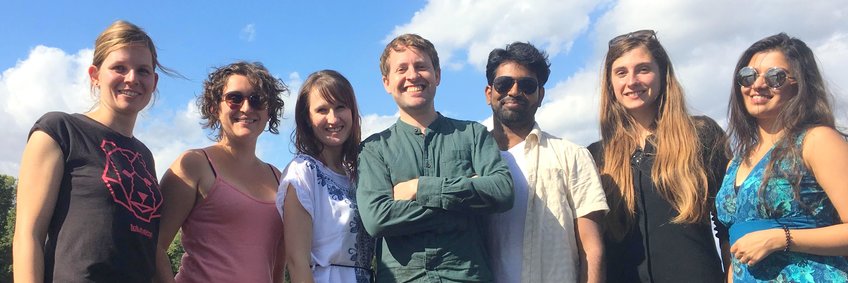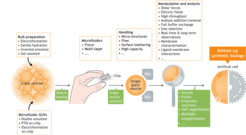
Independent Research Group of Tom Robinson
Microfluidic Synthetic Biology: Production and Handling of Multi-compartment Artificial Cell Systems
Max Planck Institute of Colloids and Interfaces, Potsdam

Compartmentalisation is essential feature of life and as part of our research use giant unilamellar vesicles, or GUVs, as compartments to encapsulate various biomolecules enablingde novomimicry of biological processes. Through bottom-up assembly of these cell-like systems, we hope to gain valuable insights into the essential components of life. Our recent goals are to use microfluidic platforms to produce artificial cells with biomimetic membranes as well as exhibiting multiple sub-compartments to fully reflect the architecture of complex eukaryotic cells. We currently focus on the cellular phenomena of self-organisation and confinement of enzymatic reactions.
This international team is based just outside of Berlin in the history city of Potsdam surrounded by beautiful nature. Other projects in the group are funded by the IMPRS on Multiscale Bio-Systems graduate program and include single-cell analysis of cancer dormancy and magnetotactic bacteria, reconstitution of biosynthesis pathways, and bacteriophage-membrane interactions - all aided by novel microfluidic platforms.
